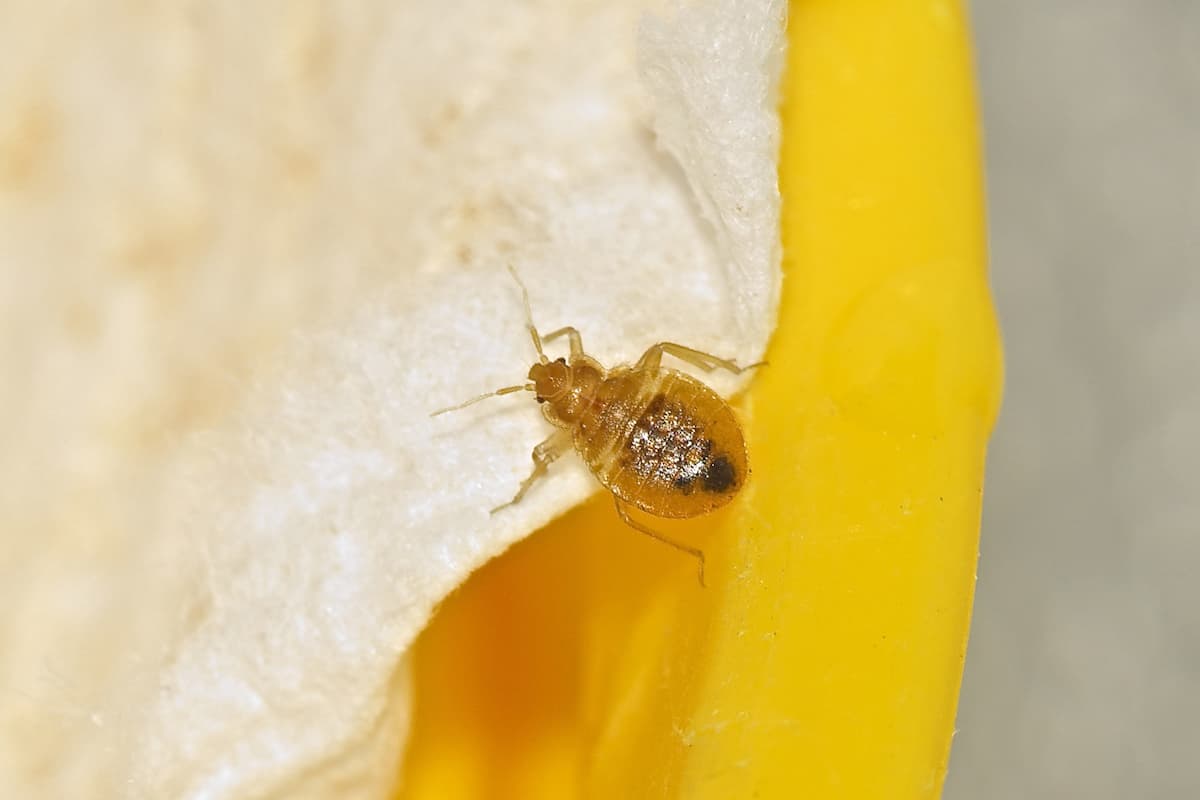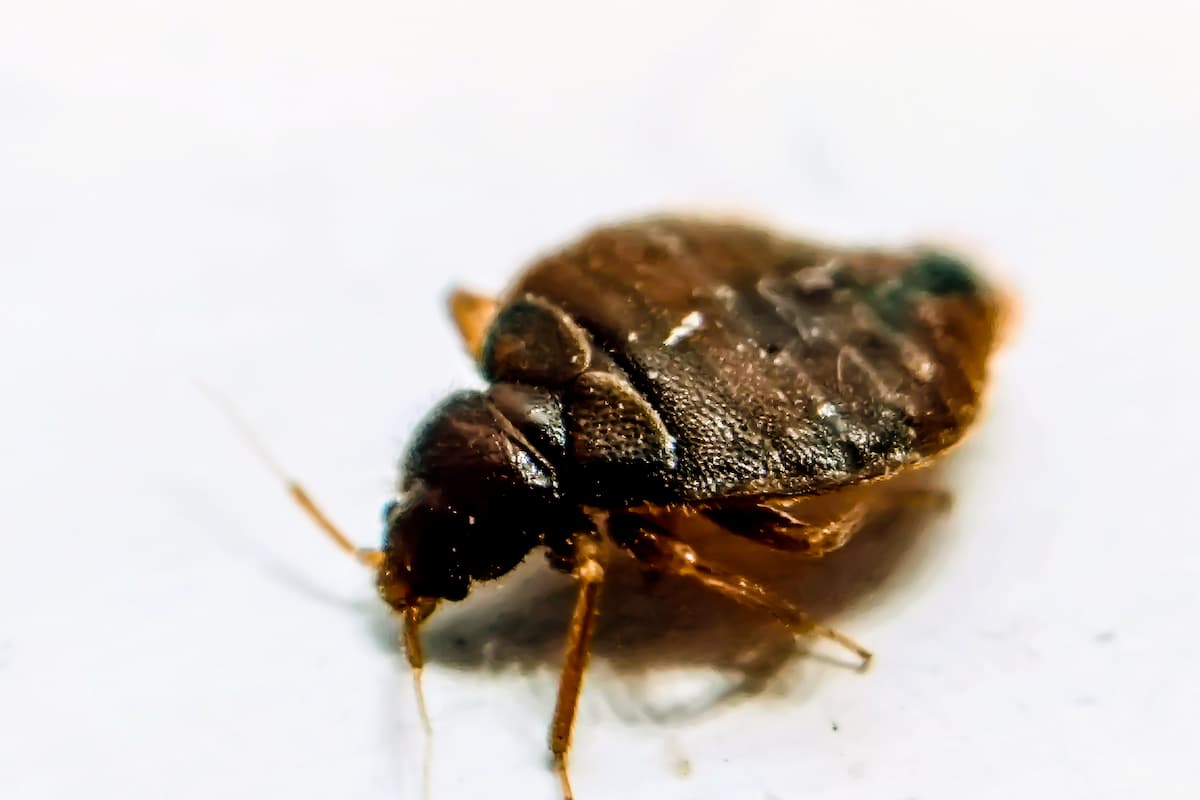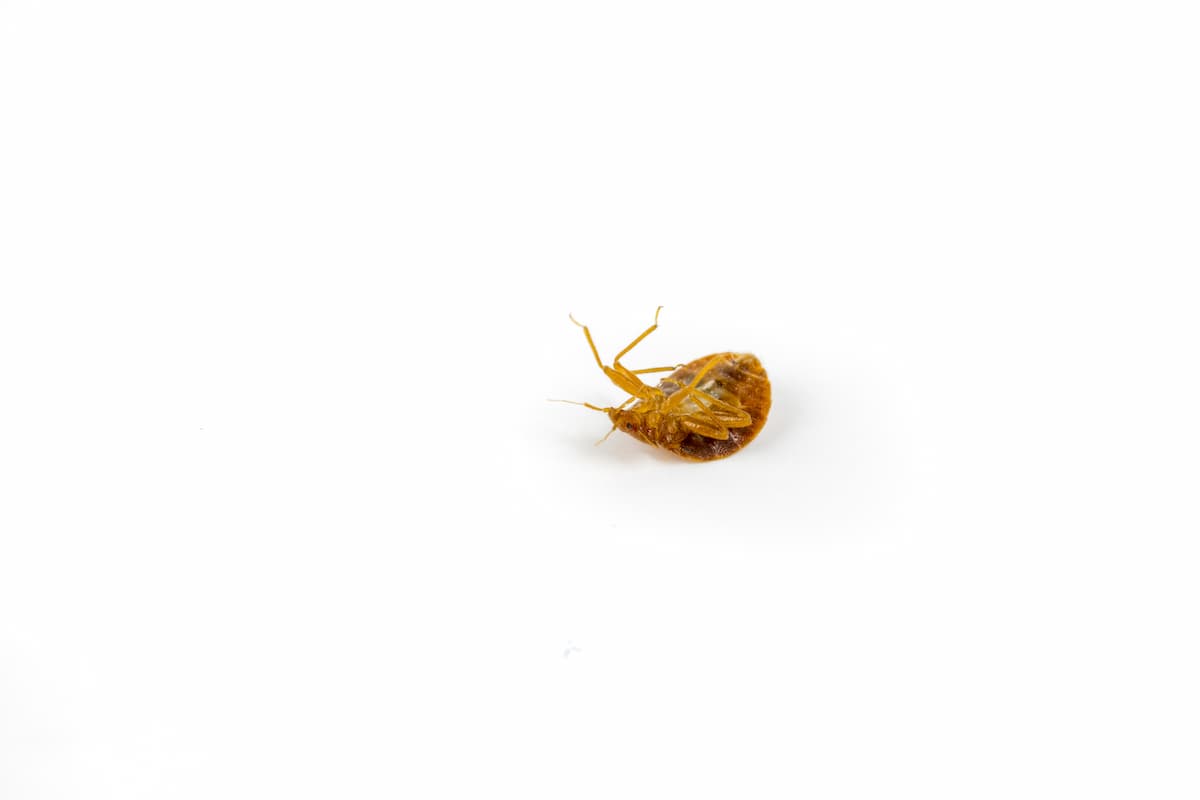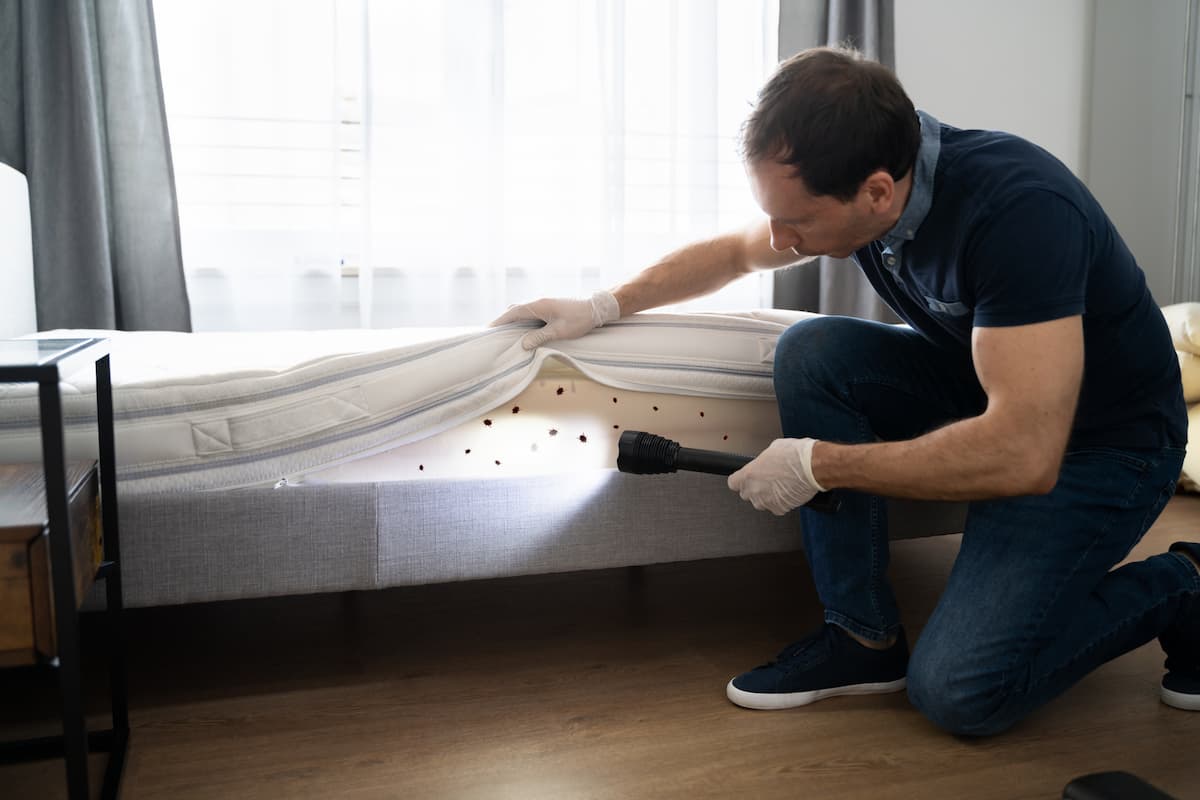How Long Does It Take for Bed Bugs to Starve and Die?
If you’ve isolated the infected rooms in your home, and no one is staying there any longer, you may have effectively begun to starve your bed bug infestation.
However, bed bugs can live anywhere between 20 and 400 days before they starve and die. Mostly, how long a bed bug can survive without eating depends on temperature and humidity. If you live in a cool and humid climate, your bed bugs could be around for a long time.
What Do Bed Bugs Eat?

Bed bugs only consume the blood of warm-blooded animals.
Therefore, a bed bug must be able to access a person or animal and feed on them to survive.
How Long Can Bed Bugs Go Without Eating?
Although the length of time bed bugs can live without eating varies tremendously depending on climate, there are some observable averages.
Typically, newly born bed bugs will die the fastest since they can only live for a few weeks without a meal.
However, adult bed bugs usually hang on for 4-5 months before they finally die of starvation.
Yet, in the most extreme cases, scientists have observed bed bugs that lived for more than 400 days without eating, but they can only accomplish this feat in cold and humid environments.
Can I Starve the Bed Bugs in My Home?

Technically, you can starve the bed bugs in your home until they die and there’re none left.
But remember that it will take at least four months before all the bed bugs die of hunger.
And unfortunately, during that time, they will probably find you and feed on you.
Even if you do everything you can to keep the bed bugs in just one area of your home, there is a good chance they will spread to other rooms.
Because even though bed bugs are small, they can move as fast as four feet per minute, meaning they can migrate to other rooms pretty quickly.
Also, blocking off all exits out of the room may not be enough to keep the bed bugs isolated.
Bed bugs are pretty small, only the size of an apple seed, and they’re flat.
Thus, they can get through just about any crack.
Plus, bed bugs get even flatter when they don’t feed, making it easier for them to migrate when they’re hungry.
And, of course, the bed bugs will have reason to do everything they can to leave the room to keep from starving to death.
Therefore, you probably won’t be able to starve your bed bug problem away because they will most likely still find a person or animal in your home to bite.
How to Keep Bed Bugs Contained in One Room
If you want to try and starve your bed bugs out, you must do everything you can to keep them contained in the room or rooms they have already infested.
Otherwise, they will find new hosts in other parts of the house.
So, to try to keep bed bugs confined to one room, you need to:
- Seal up any cracks or holes in the infected room
- Only enter the room when you need to do so
- Change and wash your clothes after entering the room
- Only take bedding and clothes out of the room in a sealed plastic bag, then put them in the washer immediately
- Vacuum your carpet often to suck up bed bugs that may be trying to travel to another area
Read More > What to Do If Bed Bugs Are Only in One Room?
In What Climates Can Bed Bugs Live the Longest Without Food?
Typically, bed bugs live the longest without food in climates that are both cold and humid.
In cold conditions, bed bugs use less energy, which helps them live longer.
Conversely, in warmer areas, they are more active and, thus, need food often and are more prone to starving to death.
Bed bugs also must have humidity to stay alive.
Otherwise, they will dry up and die.
And they usually get humidity from the blood they drink, but a humid environment can help them remain moist for longer.
Thus, in the US, bed bugs will live the longest without food in places like Alaska, Minnesota, and Michigan, where conditions are often both cool and humid.
In What Climates Will Bed Bugs Die the Fastest Without Food?

Bed bugs will die the fastest without food in hot and dry climates, such as most places in the southwestern US.
Can Bed Bugs Live in an Empty House?
You may think it would be impossible for bed bugs to live in an empty house since they don’t have a food supply.
But, bed bugs actually can live in an empty house or another vacant building.
It just isn’t likely for them to do so.
Usually, you will only find bed bugs in an unoccupied house if people have lived there recently.
If the bed bugs were feeding on those people, they could continue to live for several months after the occupants have left.
However, bed bugs could inhabit an empty building longer if there are animals there for them to bite.
For example, if cats, raccoons, mice, or other animals sleep in the home, the bed bugs could keep living there and multiplying forever.
Can I Get Bed Bugs Out of an Empty House?
Yes, you can get bed bugs out of an empty house, and you would do so in the same way you would exterminate them from any other building.
And the most common way to get rid of bed bugs is to perform a heat treatment on the home.
During a heat treatment, the temperature in the home must reach at least 118°F (48°C) and remain at that temperature for 90 minutes.
How Can I Tell if My Bed Bug Infestation Is Gone?

Really, the only way to tell if your bed bug infestation is gone is to look for indications of bed bug activity.
The most common signs of a bed bug infestation are:
- If you see bed bugs
- If you see bed bug eggs
- If you find bed bug exoskeletons
- If you see blood spots on your mattress, blankets, pillows, or sheets
- If you find tiny dark spots on or near your mattress
- If you have bed bug bites
And, of course, since you have already had a bed bug infestation, you may still have some of these signs in your home, such as bed bug exoskeletons or dark excrement spots.
Thus, you should clean up any signs of bed bugs often so that you can tell if the issue is getting better.
Can a Bed Bug Population Come Back?
Yes, a bed bug population can come back.
One female can lay up to 200 eggs throughout her lifetime.
Thus, if even one female survives, you could have a resurgence in the population.
Conclusion
On average, it takes an adult bed bug about 4-5 months to starve to death.
However, a young bed bug can die of hunger in just a few weeks.
Yet, how long it takes for bed bugs to starve depends on the climate they are living in since they can survive longer in cool and humid environments.
Table of Contents
- What Do Bed Bugs Eat?
- How Long Can Bed Bugs Go Without Eating?
- Can I Starve the Bed Bugs in My Home?
- In What Climates Can Bed Bugs Live the Longest Without Food?
- In What Climates Will Bed Bugs Die the Fastest Without Food?
- Can Bed Bugs Live in an Empty House?
- How Can I Tell if My Bed Bug Infestation Is Gone?
- Can a Bed Bug Population Come Back?
- Conclusion
